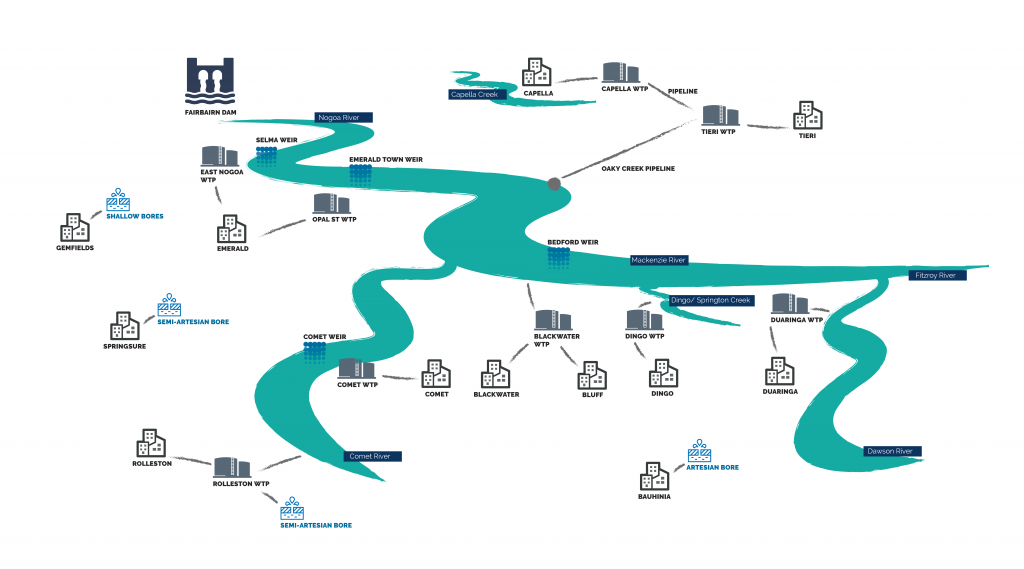Council is committed to ensuring that everyone in the region has access to high quality drinking water and continually invests in water infrastructure. Council sources water from the Fairbairn Dam, rivers, creeks and bores, either via an allocation through a water supply scheme or a water extraction licence.
Drinking water is tested regularly to ensure it complies with the Australian Drinking Water Guidelines and council has a set level of customer service standards for water supply and sewerage based on historical records.
